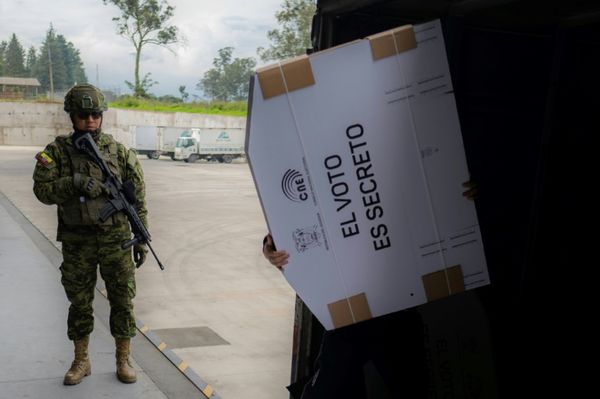Swimmer Emma McKeon has made history in Tokyo as the first Australian woman to win five Olympic gold medals.
Her achievement came as she also won a total of seven medals at the Games, the equal most for any female Olympian.
The record was set by Russian gymnast Maria Gorokhovskaya in 1952.
McKeon joins a list of women who have blazed a trail for fellow Olympians and Australians — one that has led to more women competing at Tokyo than any other Olympics.
Here are some other firsts that have been achieved since the modern Olympic Games in 1896.
Who was the first woman to win an Olympic gold medal?
Countess Hélène de Pourtalès, also known as Helen, was the first woman to win an Olympic gold medal, competing in the sailing at the 1900 Paris Games.
The 32-year-old was a crew member on the Lerina along with her husband and helmsman, Count Hermann Alexandre de Pourtalès, and fellow crew member Count Bernard de Pourtalès, her husband's nephew.
The trio won gold for Switzerland in the first race of the 1-2 tonne class on May 22, 1900, on the River Seine in Meulan.
They won silver in the class' second race three days later, losing to Germany.
There were 22 women out of 997 athletes competing in Paris in 1900, just four years after the first modern, and male-only, Olympics in Athens.
The Games were held between mid-May and late October as part of the city's World Fair.
Women were allowed to compete in five non-contact sports — tennis, sailing, croquet, equestrian and golf — but only golf and tennis had women-only events.
British tennis champion Charlotte Cooper was the first woman to win an Olympic gold medal in an individual event.
Cooper defeated French player Hélène Prévost in straight sets (6-1, 6-4) on July 11.
But that wasn't Cooper's first Olympic gold medal. She'd earlier bested Prévost and Britain's Harold Mahony in mixed doubles with her partner Reginald Doherty.
Who was the first Australian woman to win an Olympic gold medal?
Sarah Frances "Fanny" Durack was the first Australian woman to win an Olympic gold medal, competing in the 100m freestyle at the 1912 Stockholm Games.
Durack and fellow swimmer Wilhelmina (Mina) Wylie were also Australia's first female Olympians, with Wylie winning silver in the same race.
But the pair almost didn't make it to Stockholm, which was the first time women's swimming had been included in the Games.
At the time, women and men were banned from swimming together at Australian public pools and men were not allowed to watch women compete.
Australia's all-male Olympic selection committee was reluctant to send Durack and Wylie to the Games, and the NSW Ladies Swimming Association attempted to ban them from swimming in front of men.
But Durack was already a world record-breaking swimmer in the 100 yards (91m) and 220 yards (200m) freestyle, and Wylie was hot on her heels.
Public support for the duo helped sway the association, which ruled they had to pay their own way to the Games.
Local fundraising efforts ensured the Aussies made it to Stockholm.
Durack set a new world record in the heat of the 100m freestyle and went on to comfortably win the gold medal with a time of 1 minute, 22.1 seconds.
Wylie secured silver, finishing three seconds behind Durack.
McKeon set a new Olympic record at Tokyo in the 100m freestyle, touching the wall at 51.96 seconds.
Her moment on the dais with Cate Campbell also marked the third time Australian women had held multiple spots on the women's 100m freestyle podium.
Dawn Fraser, Lorraine Crapp and Faith Leech claimed gold, silver and bronze in the 1956 Olympics in Melbourne.
Who was the first Indigenous Australian to win an Olympic gold medal?
Nova Peris was the first Indigenous Australian to win an Olympic gold medal as a Hockeyroos defender in Atlanta in 1996.
Australia defeated South Korea 3-1 after the Hockeyroos' unbeaten run into the final showdown.
Peris went on to compete in athletics, winning the gold medal in the 200m and 4x100m at the 1998 Commonwealth Games.
Two years later, at the Sydney Games, she was part of Australia's 4x400m relay team and made it through to the semi-finals of the 400m.
Peris also became the first Indigenous Australian woman elected to the federal parliament.
She was a senator for the NT from 2013 until her retirement prior to the 2016 election.
The first Indigenous Australian to win a medal in the Olympics was swimmer Samantha Riley — although she didn't know it at the time.
Riley competed in the 1992 Barcelona Games, where she won a bronze medal in the women's 100m breaststroke.
She defended that title in 1996 in Atlanta, and also won a silver in the women's 4x100 medley relay.
In 2001, Riley's mother Lin, who was adopted as a newborn, discovered her Indigenous heritage through her maternal grandmother.
Just a year earlier, Cathy Freeman had won the gold medal in the women's 400m at the Sydney Games, becoming the first Indigenous Australian athlete to win a gold medal in an individual event.
The Olympic torch began its journey across Australia for the 2000 Games with Peris, who was handed the torch by elders. She then ran barefoot with her 10-year-old daughter around Uluru.
It ended its journey with Freeman, who lit the cauldron in the Olympic Stadium at Sydney.







